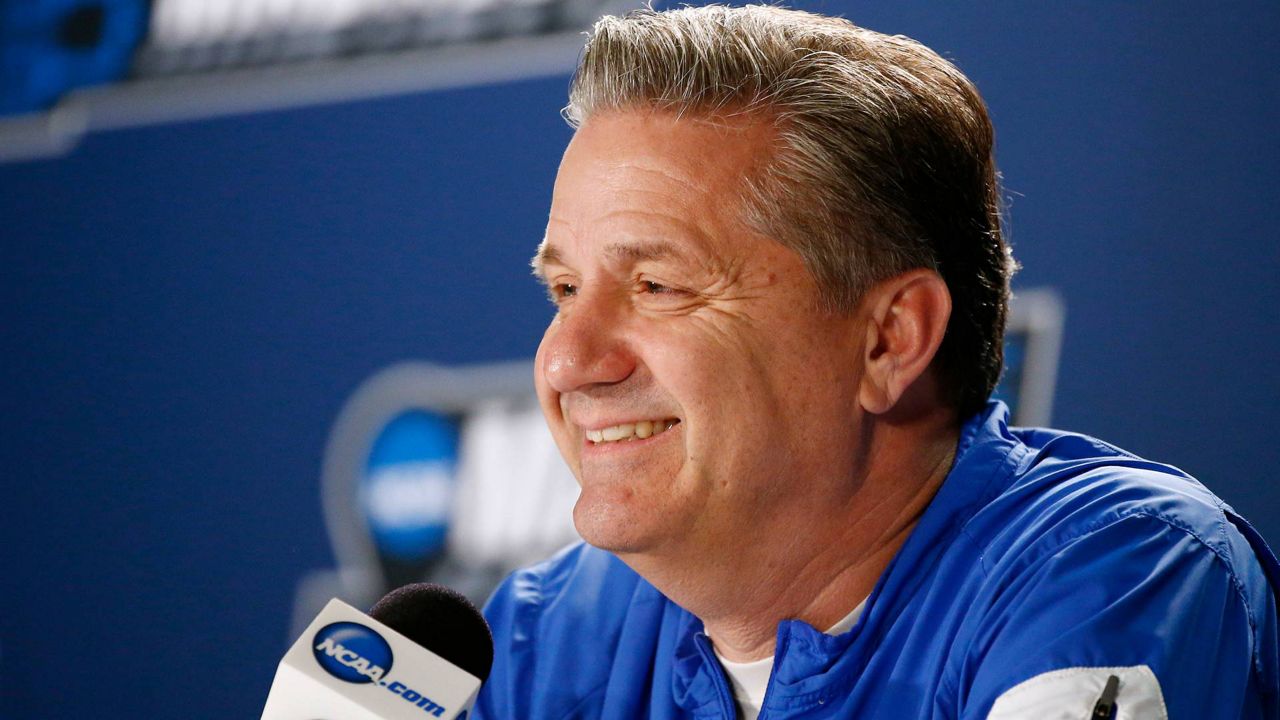LOUISVILLE, Ky. — On July 1, six states across the nation will see new laws go into effect allowing athletes to do something long forbidden in the world of college sports: Make money off of their name and image. Kentucky is not one of those states.
If the NCAA has its way, a uniform rule will be in place by the time the calendar turns to July, allowing athletes in all states to begin pursuing opportunities to profit off of their name, image or likeness, or NIL. That could include endorsements, paid autograph sessions and other opportunities yet to be discovered. The NCAA has pushed Congress to pass a federal law that would eliminate confusion created by a panoply of state laws, but with that looking unlikely by July 1, a rule allowing schools to set their own policies may go soon into effect, the AP reports.
If the July 1 deadline wasn’t pressure enough to sort out the NIL rules, the Supreme Court on Monday injected itself in the debate with a decision that said the NCAA could not legally bar athletes from receiving education-related benefits. Doing so, the court ruled unanimously, violates antitrust laws.
While the decision did not concern NIL, it represented a firm rebuke of the NCAA's amateurism argument, said Kentucky State Sen. Morgan McGarvey, who has introduced a NIL law in the Kentucky General Assembly the past two years.
“The Supreme Court is sending a signal that they don't like the way that student athletes are being treated right now,” he said. “The NCAA does need to move forward, take action, make some changes and make some national standards that are more fair to student athletes.”
When those changes arrive in the Bluegrass, the University of Louisville and University of Kentucky will be ready.
In fact, the athletic departments at both schools have long worked with athletes to help them build their brands.
“That part is not new at all for us,” said Tony Neely, assistant athletic director for communications at UK. “As social media grew, we saw the importance of educating our student athletes on how what you do now has an effect on your future, whether you’re a professional athlete or going into the regular workforce.”
The schools provide athletes with videos and graphics to share on social and attract new followers. They assist with designing logos and building websites. And they help athletes avoid the pitfalls that get some young people in trouble online.
For years, the value of building a brand was limited for a college athlete. But new NIL rules will change that. Those new rules will also make a school’s ability to help an athlete grow their following a point of differentiation in the recruitment process. Kentucky men’s basketball coach John Calipari knows that. Long considered one of the nation’s best recruiters, Calipari in May said his program should be the best in the nation at taking advantage of new NIL rules.
“Obviously, we have to wait to see exactly what the rules state,” he said. “But no one should be able to do it better for men’s basketball than our program.” He cited UK's loyal fan base as one factor that could make Wildcats some of the biggest beneficiares of new NIL rules.
For women’s basketball, few athletes are poised to profit from the changes like Louisville guard Hailey Van Lith. The Washington native had a sizeable social media following before coming to Louisville and recently ranked second on a list of college athletes who’d profit from NIL changes. The rankings, produced by the athlete marketing firm Opendorse, which works with both UofL and UK, estimated that Van Lith could bring in $965,000 annually with her social media accounts alone.
"For someone like Hailey, who has 721,000 Instagram followers and her last eight posts have six-figure engagement totals, NIL rights offer the opportunity to monetize an audience like their non-athletic peers have had for years,” said Jarrod Jordan, the Chief Marketing Officer for Iovate Health Sciences, which makes the nutrition supplement Six Star Pro Nutrition.
Jordan’s company has said it’s eager to hire college athletes to endorse its products, going so far as to erect a billboard in Connecticut urging Gov. Ned Lamont to sign the state’s NIL bill. Six Star Pro Nutrition is wants to ink an endorsement deal with Paige Beuckers, a University of Connecticut guard and the only athlete to rank higher than Van Lith on the Opendorse rankings, the billboard says.
For marketers like Jordan, athletes like Beuckers and Van Lith are appealing both for their huge social media profiles and where they play. "In a city like Louisville, college sports will always command more of the conversation than what happens at the professional level," he said.



